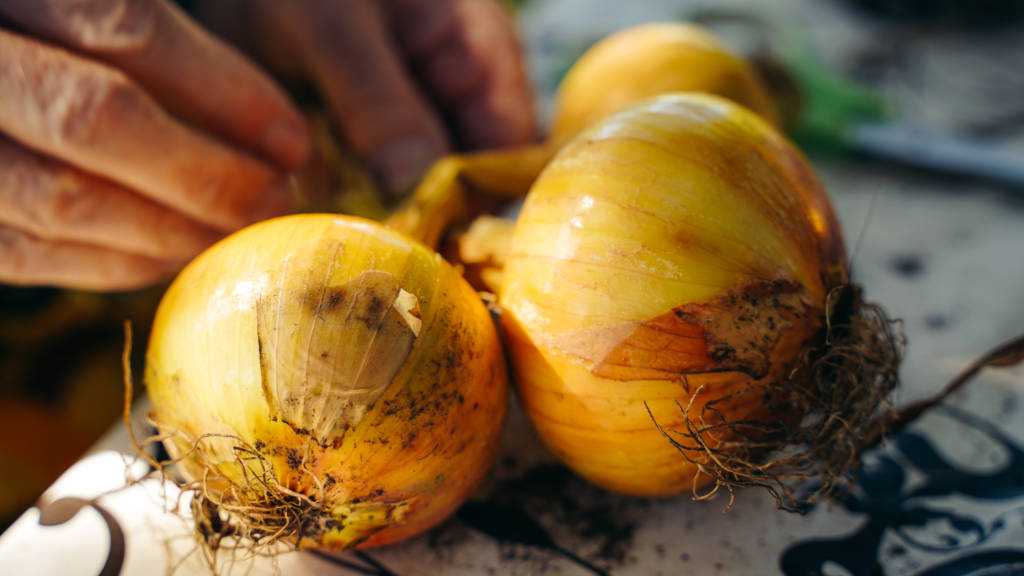
21.10.21

CULTIVATE is a regional leadership programme for Creative Practitioners and Local Communities to collaboratively engage, create and produce locally relevant work, with a climate and social justice lens, across the Tay region.
Now half-way into their commission, the Creative Practitioners have been invited to share more about their journey so far, and how they see their project evolve in collaboration with communities.
Zoë is working with our Community Partner, People Learning About Nature in Tayport (PLANT), to explore new ways to engage with the local community and support them in imagining a sustainable future for their town.
Climate action is something that has weaved its way in and out of my life since I was young. In primary school, I was a proud member of the Eco Council and would tell anyone who would listen about ‘The Inconvenient Truth’. Then, in high school, it wasn’t cool to care, so climate change become something that was just in the background, something for someone else to worry about.
A real turning point for my interest and involvement in climate action was moving away from home for the first time to go to uni. All of a sudden, I was completely in charge of how I was living – how I was spending my money, what food I was eating, how I was getting about. I have to be honest and admit that many of the eco-friendly lifestyle changes I made were primarily motivated by my limited student finances: eating less meat, shopping secondhand, trying to save energy… you get the picture. But these are all habits that I’ve kept going, even though my uni days are now behind me.
I’m interested in climate justice because I care about our planet and the people that live on it, and I think we should all be doing our bit to make sure our future is the best it can be.
For me, climate justice is more than statistics and numbers – it’s about real people and recognising that climate change affects different groups in different ways. We need to be addressing problems on a much more local scale in order to be effective and considerate of communities and their individual needs. For example, it’s great to think about a future where we all grow our own food, but what about those of us who don’t have a garden or access to green spaces, or the knowledge, time or resources to tend to plants?
I think it’s important that we provide opportunities and education for people to make planet-friendly living as accessible as possible. I also think our approach has to be collective and holistic – how can we address social issues in ways that help the planet and its people?
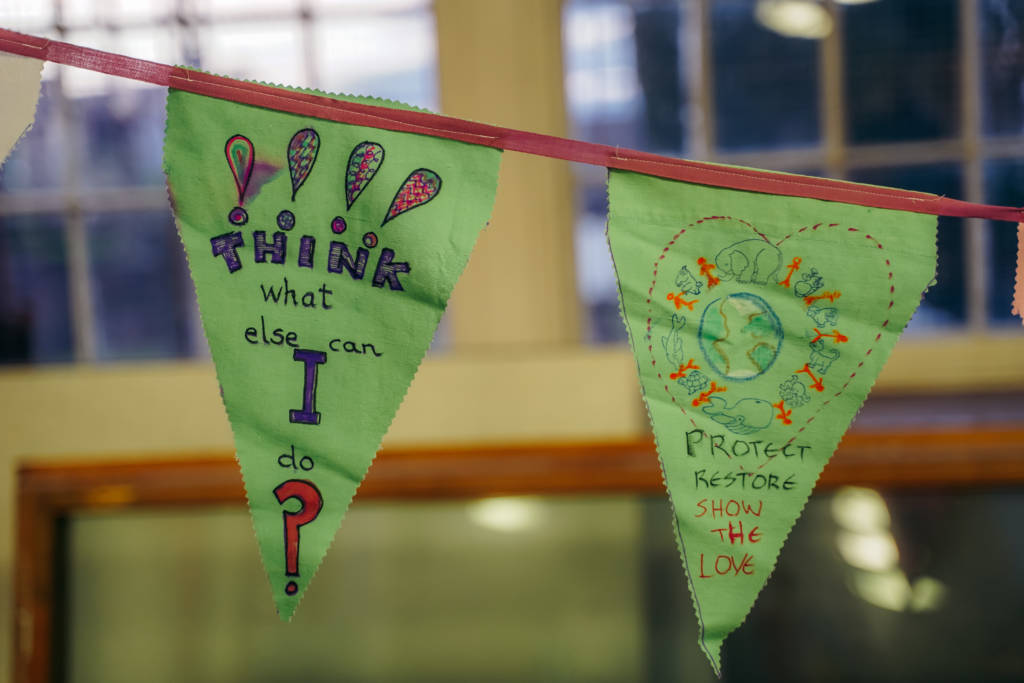
Over the past year and a half, since graduating from uni, I’ve found my creative practice changing and evolving. I studied illustration, and I’d say it’s still my main form of creative output, but recently I’ve become more and more drawn to photography and filmmaking. In all that I do, I love to tell stories, and this is something that I think is very relevant to what we’re working towards with PLANT, in Tayport.
What excites me the most in this commission is been able to bring together different areas of my creative practice, and really look at imagination and how we can involve everyone in creatively dreaming about the future of their town. I’m all about creating uplifting, positive content, and I’m looking forward to using these skills to help the community in Tayport imagine what sustainable changes could happen, and to give them a platform to share their hopes and dreams for the future.
It’s also simultaneously scary and wonderful to be given the creative freedom to try different things, and to essentially work with an open brief and not have a defined outcome to work towards.
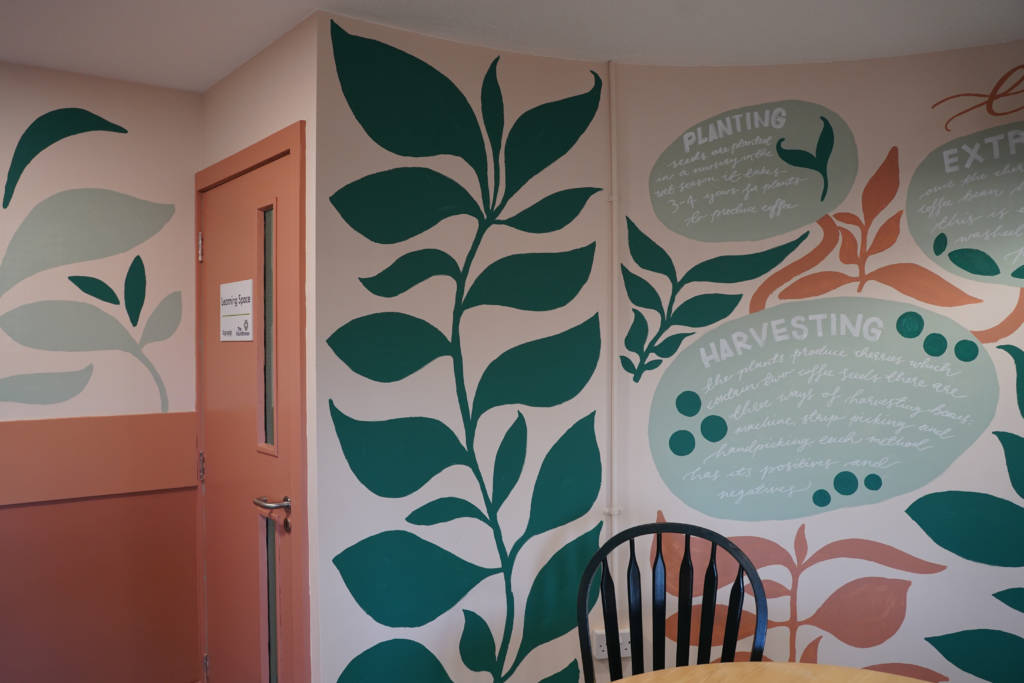
The recent Tayport Climate Festival gave us the opportunity to get people started on thinking and talking about a better future. At the festival, I was able to film some interviews with local people and capture some ideas. There have already been so many great ideas from sharing locally grown produce amongst the community and introducing more areas of wildflowers, to reducing traffic to allow the sounds of nature to emerge.
Research from the University of Derby has shown that reconnecting with nature is the most effective way of increasing awareness about climate action and bringing about change, and we’re well placed in the Tayport Community Garden to involve people and help them connect to nature so close to home.
I really hope that during this project we can help people relate to nature and climate change on a more personal, individual basis and encourage them to think that they can play their part in saving the world too!
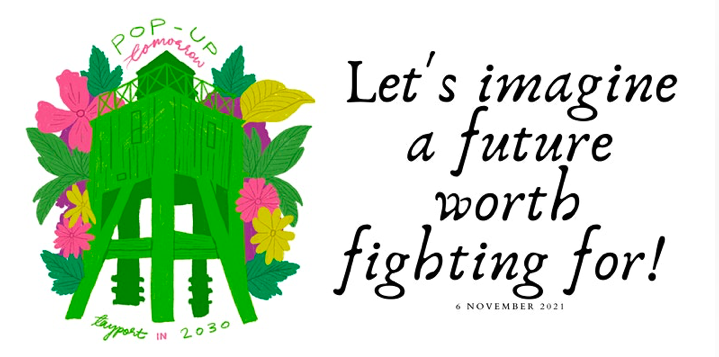
We’re inviting the local community to a visioning event, Pop-Up Tomorrow, at the new Larick Centre, to imagine what the area could look like in 2030 if we all do our bit to help tackle climate change. We’ll share a meal, have small group chats, and write postcards from the future to discuss and develop our ideas. We’ll also make a map of the future and ask people to think very locally, for example, what might their house look like, or their street?
We want this event to be hopeful rather than scary – to feel welcoming, exciting, and most importantly, to be a safe place for people to share their hopes, ideas and even fears for the future. It will also be a way to introduce people to each other, encourage them to stay in touch, and build on the existing climate action network in the area.
Living in Tayport? Join us at Pop Up Tomorrow – Tayport in 2030 on Sat 6 November (1:00-7:30pm), to share your ideas, connect with others and imagine a future worth fighting for!
Practically, our collaborative work with local groups and network could look like inviting people to illustrate what they might like to see in the future, then collating these as drawings or combining them with photography to display their ideas into the local landscape. Or it could be an engaging documentary featuring their thoughts and insights from the festival, the visioning event and any follow up events we hold. I’m also keen to bring filmmaking and illustration together, to visualise what Tayport could look like in 2030 in a fun, exciting way.
I also imagine that my biggest challenge will be getting people to appear on film or having their voices recorded. I completely understand that it’s quite nerve-wracking to be interviewed, so I really hope that our visioning event will help people feel more comfortable in exploring and expressing their hopes for the future. I’ve already enjoyed talking to people about their ideas at the Climate Festival, so I’m really looking forward to doing more of that and seeing what the next few months hold for us as we continue working together!
Of course, making a beautiful film that shows the community’s vision for Tayport in 2030 is great, but I’d say the whole project will be a success if we manage to make a positive, lasting change in local attitudes towards climate change and climate action. My hope is that we can create something that inspires people, but also challenges and enables them to take action and make sure they are taking part in the best future possible.
It’s great to imagine what the future could be, but we also know that the difficulty is in the follow up – we all have to be able to step up and take action to ensure that future becomes a reality. I’m already planning to work with PLANT to further develop ideas on how we can continue making an impact beyond the CULTIVATE project, and how we can ensure the community has ownership of these initiatives.
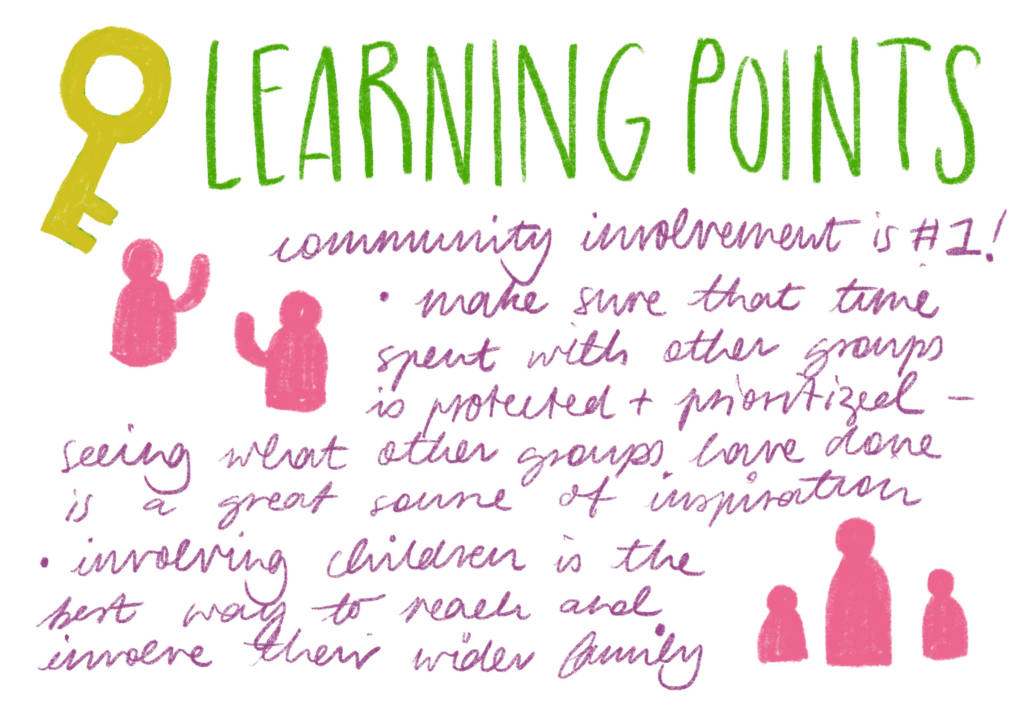
CULTIVATE is a pilot project, which engages communities with climate justice, through creativity and peer-education. We’ll be sharing insights into each of our first six Creative Practitioner commissions over the coming weeks. Read more about our Community Partners and the six commissions.

If you would like to support us in creating even better content, please consider joining or supporting our Amps Community.